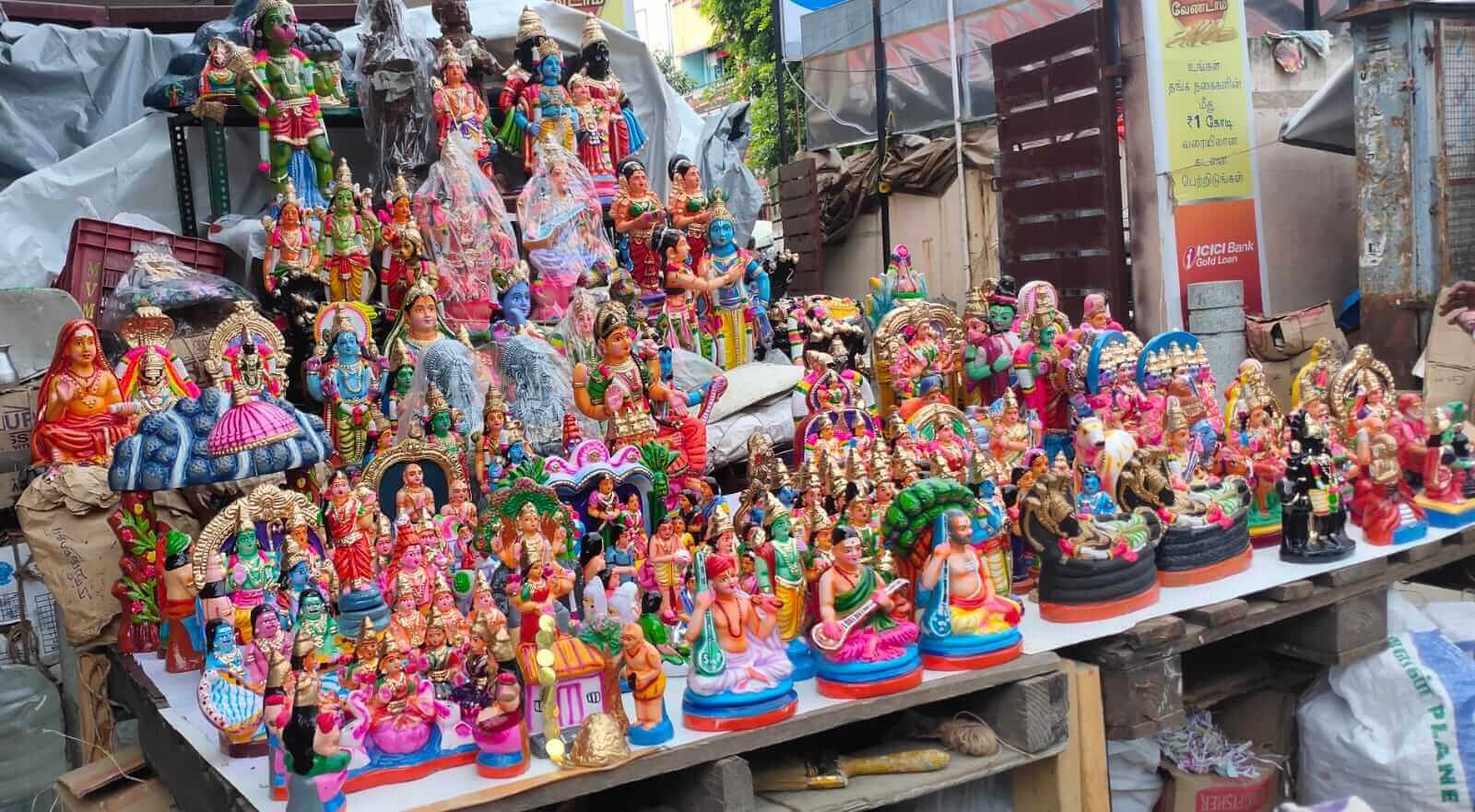Chennai: Local artisans in Mylapore of Chennai have not recovered from the second wave of Covid-19 despite the ease in lockdown restrictions, though retail stores selling Golu idols see robust sales.
Golu making is a seasonal and labour-intensive business and the sudden lockdown from April to June severely impacted small-scale Golu idol makers. The process to make the idols begins over a year before.
Due to a steep dip in income from sales last year, local artisans struggled to meet basic expenses such as emergency medical needs, children’s school fees, amid mounting debts.
The artists could not buy the paint, soil, or moulds necessary to make the dolls for this season.

However, Golu artisans employed by organised retail stores comfortably sailed through the lockdown, as the demand for exports has continued over the last 19 months.
R Kumaran, a local artisan, said that they have never witnessed such a dull phase of business.
Kumaran lost his wife to in September 2020. The family had piling loans taken to survive the pandemic. As a result, Kumaran’s nine-year-old son had to drop out of school. Asked about government incentives provided, Kumaran said, “The government gave rice, lentils, oil and Rs 2,000 for all homeowners, but nothing for the people in rented shanties without ration cards.”
This season, both Kumaran and his son repainted dolls from two years ago.
On the other hand, a Giri stores spokesperson said that during the lockdown, the chain arranged for workers to take home moulds and soil to stick to the schedule and not cut down on the workforce.
Selvi, a Giri stores employee, said she was exempted as she was down with Covid-19, but she suffered no pay cut.
Asked about the price hike this season, the Giri stores spokesperson said, “To make pre-pandemic level profits, all newly made dolls were priced differently this year”.
Local artisans in Mylapore’s North Mada Street waited in vain for the vendors who promised to collect dolls.














